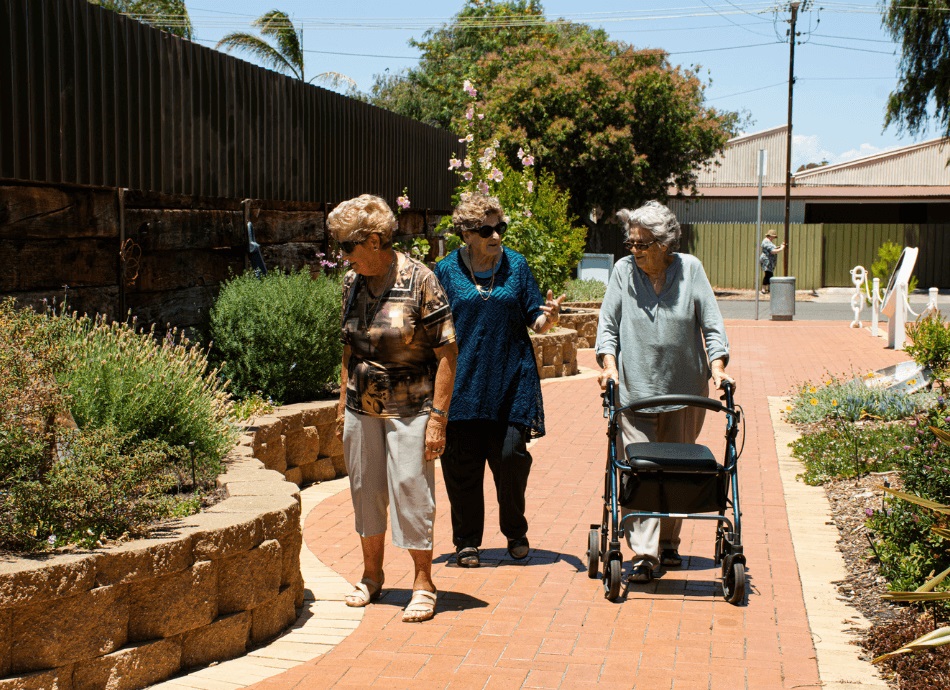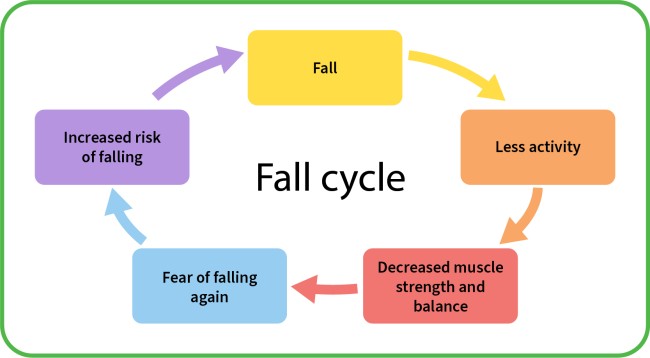If you're a frequent visitor to Healthify, why not share our site with a friend? Don't forget you can also browse Healthify without using your phone data.
Vitamin D and falls
Key information about Vitamin D and falls
- Falls become increasingly common and far more likely to cause injury after the age of 55.
- Along with serious injury or fractures, you face a possible loss of independence and a knock to your confidence.
- It's estimated that vitamin D supplementation could prevent at least a quarter of falls that are currently happening in New Zealand residential care facilities.
- Your healthcare provider will assess your condition and decide whether vitamin D supplement is suitable for you.

A fall at any age can be dangerous, but falls become increasingly common and far more likely to cause injury after the age of 55. About 1 in 3 people over the age of 65 will fall in any one year. Of these, 4% end up in hospital and 1% suffer a hip fracture.
Falls can have devastating consequences for older adults, particularly those living alone. Along with serious injury or fractures, you face a possible loss of independence and a knock to your confidence.
Some people, especially those who have had a fall, restrict what they do because of a fear of falling. While this sounds sensible, reduced activity actually puts you at a greater risk of falling. This is because it causes you to lose muscle strength and coordination. Read more about falls prevention.

Vitamin D is important for the absorption of calcium from your stomach and for the functioning of calcium in your body. This helps your bones to stay healthy and your muscles to work well.
- Low levels of vitamin D are linked to bone conditions such as rickets in children and osteoporosis and osteomalacia in adults.
- Low vitamin D levels may be linked to non-skeletal health conditions, such as colorectal cancer, cardiovascular disease and immune system problems. Researchers are looking into whether increasing vitamin D levels could help prevent any of these conditions, but the evidence is not clear at this stage.
- Vitamin D has been shown to help reduce falls and fractures in older people in residential care. More research is needed to see if vitamin D could help reduce falls and fractures in other groups of people.
- However, too much vitamin D replacement can lead to high levels, which can actually increase your risk of falls. For this reason, you should only take vitamin D as recommended and prescribed by a doctor.
Read more about vitamin D.
Vitamin D in our body has 3 main sources:
- Sensible sun exposure – as little as 15 minutes under the sun (without sunscreen), 3 times a week enables your body to make enough vitamin D – but you need to be sensible. Read more about vitamin D and sensible sun exposure.
- Food sources of vitamin D – Vitamin D is found in small quantities in a few foods such as eggs, liver and fatty fish (North Sea salmon, herring and mackerel).
- Dietary supplements – Vitamin D supplementation is not recommended for most New Zealanders. It is only helpful for people at risk of vitamin D deficiency.
Older adults living in residential care often do not get out to stay under the sun as much as you used to when living in the community. If you do manage to get outside, the process of converting vitamin D to active vitamin D is often impaired due to older age. Therefore, older adults often have low vitamin D levels.
The amount of active vitamin D synthesised from sunlight decreases as people get older and have more skin pigmentation. However, in general, you need to get sun exposure of your hands and face for 10 to 20 minutes daily.
In research conducted by ACC and Health New Zealand | Te Whatu Ora, vitamin D has been shown to help reduce falls and fractures in older people in residential care by increasing muscle mass and therefore reducing falls.
Reducing falls helps residents to move around by themselves and be more independent, and staff don't need to spend as much time helping residents with a fear of falling or those with fall-related injuries.
Research also shows that in 25 residents living in a residential care facility, at least 1 will suffer from a hip fracture due to a fall every year. It's estimated that vitamin D supplementation can prevent at least a quarter of falls that are currently happening in New Zealand residential care facilities.
However, more research is needed to see if vitamin D could help reduce falls and fractures in other groups of people, eg, those living in the community.
Yes, vitamin D supplements are offered to all people living in a residential care facility.
Your healthcare provider will assess your condition and decide whether vitamin D supplement is suitable for you. Taking supplements under the care and advice of your healthcare provider helps ensure you are getting the full benefit of a supplement and minimises any side effects.
Yes, you should still exercise, if it is possible to do it safely. Exercise has a lot of benefits other than helping to increase muscle mass, including:
- stronger bones
- improved balance, muscle strength and flexibility
- more energy
- better sleep
- better control of blood pressure, blood sugar and weight.
Yes, like any other treatment, your healthcare provider will try to explain the reasons for and benefits of having a vitamin D supplement in your situation before prescribing. If after you have understood what your GP explained and still don't want to take it, you can let your doctor know. Read more about informed consent.
Vitamin D supplements come in a tablet form. In the first month, you need to take 1 to 2 tablets together, as directed by your doctor. Then, only one tablet is needed each month. Everyone in the facility receives the same dose.
According to studies, vitamin D levels in some people can return to normal between 3 to 6 weeks after starting the supplement.
No, a vitamin D blood test costs at least $50 and it is not recommended in older adults living in a residential care facility. It is unnecessary as most of the residents are deficient in vitamin D. If you are living in the community, talk to your doctor about this.
There won't be any harmful effects as the recommended dosage for vitamin D supplements in older adults living in a residential care facility is low. In addition, if you are taking vitamin D supplements and have sun exposure, your body will limit the amount of active vitamin D that is synthesised.
Vitamin D – a proven D-fence against falls(external link) ACC, NZ
Eating and activity guidelines(external link) Health New Zealand | Te Whatu Ora
How to get your daily vitamin D(external link) Health New Zealand | Te Whatu Ora, NZ
Consensus statement on vitamin D and sun exposure in NZ(external link) Cancer Society and Ministry of Health, NZ
Vitamin D fact sheet for consumers(external link) NIH, US, 2021
Apps
Falls prevention apps
Self-management and healthy living apps
References
- Vitamin D – a proven D-fence against falls(external link) ACC, NZ
- Young MRI, Xiong Y. Influence of vitamin D on cancer risk and treatment – why the variability?(external link) Trends Cancer Res. 2018;13:43–53.
- Vitamin D supplementation – navigating the debate(external link) BPAC, NZ, 2011
Credits: Healthify editorial team. Healthify is brought to you by Health Navigator Charitable Trust.
Reviewed by: Dr Helen Kenealy, Geriatrician and General Ghysician, Counties Manukau DHB
Page last updated:





